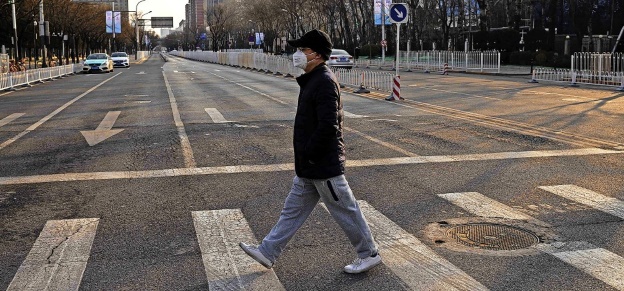 |
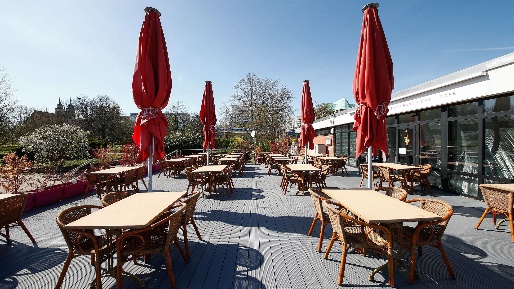 |
We turn on the radio or television – Corona!
We open the daily newspaper – Corona!
We meet our neighbours on the doorstep - Corona!
We call family, friends and acquaintances – Corona!
After more than a year of pandemic: first, second, third waves; social-distance regulations; lockdown; openings; lockdown light; home office; curfew; restrictions; demonstrations; fines; closed kindergartens and schools and now a slow roll-out of vaccinations due to various reasons and blame-games ... who is surprised that many people are tired and fed up!?
How has our daily life changed during the corona pandemic?

For retirees, singles and families: shopping for groceries is often the only opportunity to see other people. We witnessed panic-buying: In the beginning it was very difficult to get toilet-paper or yeast or pasta, everything was always sold out! Much more than usual, people go for walks in the forest, discover the pleasure of hiking or cycling with newly purchased bicycles. Some people bought or adopted dogs and this was also a valid reason to bypass the curfew. At home, new cooking and baking recipes are often tried out, home-improvements carried out, the basement and garage cleared out, the garden turned over or a raised bed placed on the balcony.
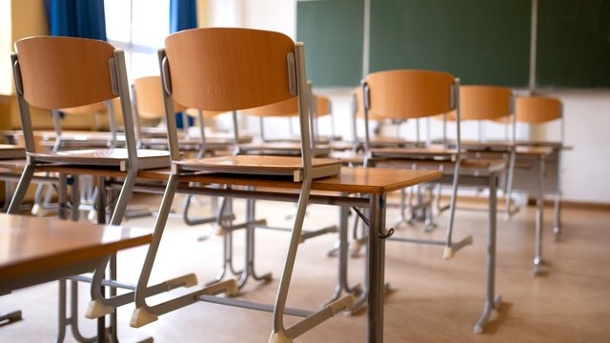
For families with several children corona time is a great challenge. Home office for parents and homeschooling for children at home at the same time is spatially, technically and nervously difficult to organize. In homeschooling, pupils are provided with more or less teaching material in digital or paper form (primary school pupils). Parents have to support their children as much as they can. Initially, many students first had to be equipped with devices (notebooks, tablets, printers). Virtual lessons are only slowly improving. However, pupils miss contact with friends and classmates. Learning in a group is not possible. The learning gaps for many children and young people are getting bigger and bigger. Some children are suffering in their psychosocial development. In many families there are also boredom, domestic violence and worries about the future and also financial difficulties. But there are also families who have turned the complicated daily routine in an opportunity where their family life is well organized and structured, cooking together, meals can be eaten together, and free time is spent playing and walking together.
For working people : Wherever it is possible Home Working is implemented. In many enterprises, however, this is not possible. At the post office for example, in the letter and parcel centres people have to wear face masks and there have been quick tests for employees since the beginning of the year. Post-persons leave the parcels in front of the door without any contact with the recipients.
For students :Since all universities are closed and only teach online, many students live (again or still) at home with their parents. They sit in front of the computer all day and have no opportunity to get to know other fellow students or to have real contact with them to exchange ideas. Social contact is inexistent
Regulations
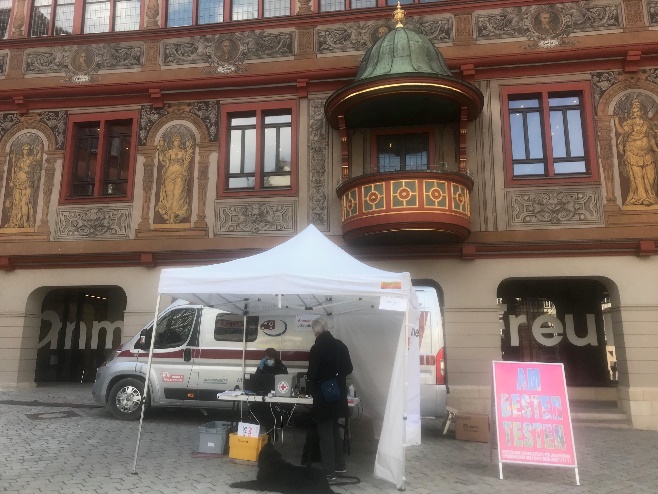 Due to federalism in Germany, there are many different regulations in the individual federal states. Not all measures adopted by the government apply equally in all federal states.
Due to federalism in Germany, there are many different regulations in the individual federal states. Not all measures adopted by the government apply equally in all federal states.
Naturally, there is criticism of politics. Breakdowns in the system occur everywhere, especially when short-term decisions have to be made. But is that a reason to get rid of our federal system? Do the centrally controlled countries really do it better than we do?
Over Easter there were again demonstrations by "lateral thinkers" in Stuttgart and the surrounding area against the corona regulations of the governments of the federal states and the federal government. No social-distance was kept and no masks were worn. Posters and mostly grotesque statements by the participants wanted to make German citizens believe that because of the pandemic, restrictions and precautionary measures had only been ordered in Germany.
In this manner the demonstrators denigrate the people who take care of the sick and who risk getting the virus in the process. What is the purpose of the organizers of such demonstrations? Are they really interested in the restrictions that are supposed to limit the spread of corona?
Do the corona deniers actually refrain from seeking medical treatment in the event of being infected with the virus?
Personal restrictions
We personally miss the self-determinable freedom for spontaneous undertakings; meeting with family / friends; going to a restaurant or beer garden; going to the cinema, theatre and concert; celebrating weddings and birthdays with lots of relatives and friends; doing sports together indoor / outdoor; weekend getaways with overnight stays; holidays abroad; twinning meetings of Jumelages and much more.
Hope
We are grateful that we were spared the disease and that we did not have to suffer any serious consequences from the pandemic; family and friends have generally grown closer together. We value again more what was lost between appointments and the daily hustle and bustle. We are happy about the little things in life.
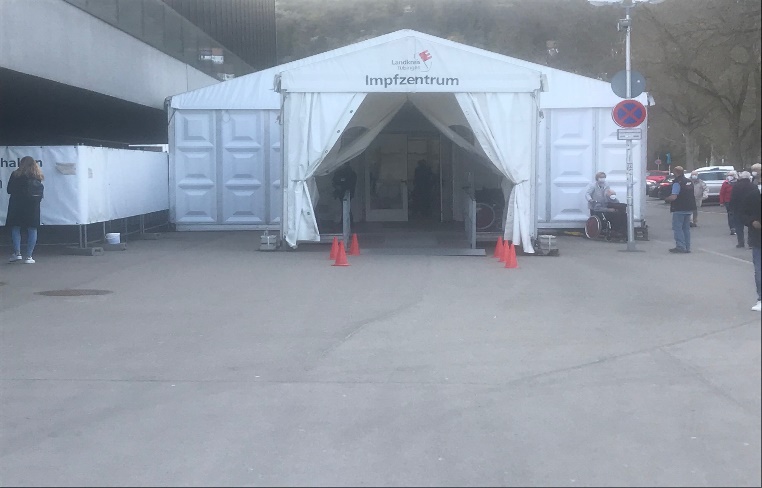
The great hope in all countries lies in the vaccines. Slowly there are more and more of them, so that we will for the most part be vaccinated by autumn / winter - if the mutations do not thwart our plans.
But then ... how wonderful! There is a lot for everyone to catch up on and of course also in the Jumelages. Everyone is longing for it already now!
Despite all the terrible things that the pandemic brought and will bring, some positive effects could be maintained: e.g. keep a certain distance in shops, more home –working where possible, faster digitization of schools, less professional air travel, online language courses within the Jumelages, regular video conferences within partner sections of the Jumelages ... .
We can already sense the light at the end of the tunnel, even if we still have to drive a few curves inside the tunnel.
Our wish to everyone with whom we are friends:
stay cautious, positive, calm and stay healthy!
 |
||
|
Michaela Alber Sektion Böblingen-Tübingen |
Germany |
Edeltraud Hübner Sektion Stuttgart |


